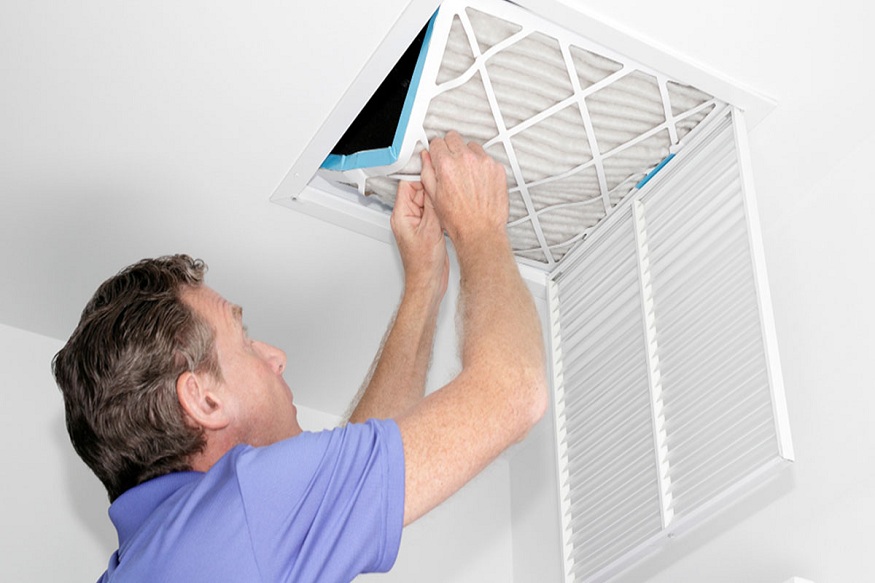For those who deal with allergies on any kind of regular basis, the spring season we’re just about to enter is one of the most severe for this sort of thing. Those in this position have a few tools at their disposal for limiting or even preventing allergy triggers, however, and one such tool is the proper use of filters within your home’s HVAC system.
When receiving AC or heating maintenance or repair services from quality HVAC technicians, filters are an important topic that will be discussed. What are HVAC air filters, and how do they help limit or even eliminate the presence of allergens in your home? Here’s a primer.
HVAC Filter Basics
For those unfamiliar, HVAC filters refer to the air filters within your heating and cooling system. They are typically located in the return air duct, and their job is to clean the air that circulates throughout your home. This is done by trapping contaminants like dust, pet dander, smoke particles, and other allergens.
The type of filter you use will depend on a variety of factors, including whether you or anyone else in your home suffers from allergies, the type of heating and cooling system you have, and the size of your home. There are also different grades of filters, with each one designed to capture a specific range of contaminants.
The most common type of filter is the disposable filter, which is made of paper, fiberglass, or foam. These filters are easy to install and replace. There are also washable filters available, though these may not have the same filtration capabilities.
MERV Rating
A vital area to be looking at when choosing filters for your HVAC system is the MERV rating. The Minimum Efficiency Reporting Value, or MERV, is a scale that rates how effective a filter is at capturing contaminants. The higher the MERV rating, the more contaminants the filter will capture.
Most filters have a MERV rating of 1 to 12, with the higher ratings being reserved for those with allergies or asthma. If you or someone in your home has allergies, it’s important to use a filter with a MERV rating of 8 or higher.
Replacement Frequency
Replacing your disposable filters frequently enough is important for all homeowners, but especially so for any home where someone with allergies resides. If the filter isn’t replaced often enough, it will stop capturing contaminants and actually start releasing them back into the air.
How often you need to replace your filters will depend on the type of filter you have, the size of your home, and the level of contamination. Most disposable filters should be replaced every 2 to 4 months, while washable filters should be cleaned every 1 to 3 months.
Generally speaking, we recommend replacing or cleaning filters on the shorter end of these timelines if there’s an allergy sufferer in the home. This will help to ensure that as much of the allergen load as possible is captured and eliminated.
If you’re unsure of what type of filter to use or how often to replace it, be sure to consult with your HVAC technician. They will be able to recommend the best filters for your specific system and needs, plus help ensure that your system is running as efficiently as possible.

